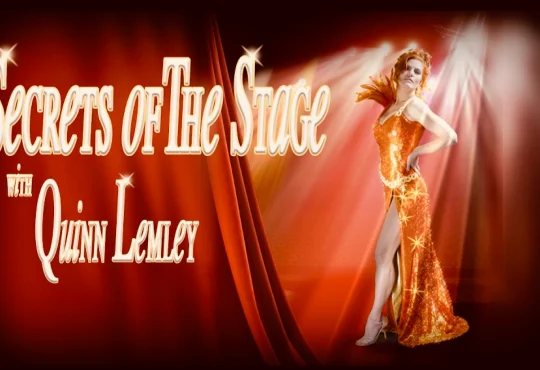‘Euphoria’ Special Part 2 Recap: A Trip Through Jules’ Mind
This post contains spoilers for the second Euphoria special, which premieres Sunday night on HBO and is available on HBO Max.
“I feel like real life is always such a letdown,” Jules Vaughn (Hunter Schafer) announces midway through this second Euphoria special, titled “Fuck Anyone Who’s Not a Sea Blob.” She’s referring to how much more satisfying she finds online relationships than in-person ones, particularly in the aftermath of being catfished by sociopath supervillain Nate (Jacob Elordi). But it’s striking to see how much this special and the one focusing on Jules’ girlfriend Rue (Zendaya) serve as a departure from the heightened reality of the series’ first season. It’s as if these two episodes — created and produced under Covid safety guidelines, with stripped-down casts and crews — are meant to be “real life.” And they have been anything but a letdown.
The Rue episode, “Trouble Don’t Last Always,” was essentially a one-act play in which Rue and her Narcotics Anonymous sponsor Ali (Colman Domingo) open up about their respective addictions and heartbreaks. It was Euphoria stripped of all its stylistic tics, and the emotional substance proved more satisfying than the show’s usual flash.
“Fuck Anyone Who’s Not a Sea Blob” is slightly less of an acoustic duet. Much of it takes place in Jules’ first session with her new therapist, Dr. Mardy Nichols (Lauren Weedman), as if Schafer and Euphoria creator Sam Levinson, who co-wrote the episode and directed it, were huge fans of HBO’s late, great, and soon-to-be-rebooted drama In Treatment. But while Weedman is excellent, the nature of her role as a mental health professional makes this a more different conversation than the one Rue and Ali had. Dr. Nichols is there to listen, not share painful details from her own life, so this isn’t a two-hander like the last special. This dynamic works to the story’s advantage, because we already knew so much about Rue — the show’s main character, narrator, and main point-of-view figure — where Jules previously existed at a slight remove. We saw her away from Rue, particularly when she was pursuing violent sexual relationships with older men like Nate’s father, and we heard her talk about her gender transition, but she was also something of a puzzle for both Rue and Euphoria to solve.
Over the course of this hour, the mysteries are laid bare. Jules admits to now having some agnostic feelings about her transition — “I feel like my entire life, I’ve been trying to conquer femininity, and I feel like somewhere along the way, femininity conquered me” — and contemplates going off some or all of her hormones. (It’s in this sequence in particular where having Schafer co-write the episode seems especially valuable, because it’s territory she understands from the inside out.) She talks about the pain she felt when she discovered that her online crush “Tyler” was really Nate manipulating her(*). She confesses to the unfair burden she feels as the person who is almost singlehandedly keeping Rue sober, and reveals that her mother Amy (Pell James) is herself an addict. This is huge new information that recontextualizes Jules and Rue’s entire relationship, including Jules’ reasons for not sharing it with Rue in the first place.
(*) Nate, with his ability to talk anyone — even his own victims — into aiding and abetting his many crimes, was already the most ridiculous and frustrating part of Euphoria, and he feels even more so after these episodes. If Season Two were to reveal that various federal law enforcement agencies had arrested Nate and renditioned him to Guantanamo, never to return, it would be a massive improvement for a show that has plenty of other room for melodrama, but not to the absurd degree Nate brings.
Even more than the first special did for Rue, this one provides a great deal of depth and grounding to who Jules is and what motivates her. She’s no longer an enigmatic object, but a three-dimensional, vulnerable, complicated person. So if and when Euphoria goes back to being its usual hyperbolic self, it will all mean more, because we’ll have a much clearer sense of its other main character.
As it is, “Fuck Anyone Who’s Not a Sea Blob” is a bit closer in style to how the series usually operates. When Dr. Nichols asks why Jules ran away at the end of Season One, we see a multicolored slideshow of important events from past episodes, projected on Jules’ eyeball, all while Lorde’s “Liability” plays. And without Dr. Nichols getting her own subplot in the way that we saw Ali reconnect with one of his estranged daughters, there’s room to step away from the therapy appointment to offer more glimpses of Jules’ life before she came to that conversation. Some are archival clips that play differently with the new information we have, while others are new snippets about her relationship with her mom or dad (John Ales), or even fantasy snapshots of how she felt when she was sexting with “Tyler.”
Most of that feels like a distraction, though, from the best part of the special, where it’s just Jules talking about herself. Those scenes put a lot of responsibility on Schafer’s shoulders. This is her first real acting job. She doesn’t have her co-star Zendaya’s experience or training, and there were plenty of times in the first season where Levinson was relying more on her raw and unmistakable screen presence than on, say, her skill to deliver dialogue. Here, though, she’s doing it all — often in extended close-ups, scrubbed mostly bare of makeup, just talking about her alter ego’s pain and aspirations. And she is utterly compelling throughout.
In the final scene, our heroines cross paths, as Rue finally stops by to see Jules for the first time since Jules ran away. Relief washes over Jules’ face, but the reunion is brief and uncomfortable, ending abruptly when a tearful Rue bolts from the room rather than confront all the difficult history between them. She doesn’t know what we have just learned — that Jules needs Rue at least as much as Rue needs her — and can’t stand to be hurt again, so she runs. And, as with the Rue special, we close with our leading lady framed by a window streaked with pouring rain, consumed by the turmoil of recent months.
Levinson made these episodes in part so that there would be some version of Euphoria on television until it was possible to film the show the pre-pandemic way. (Remember: The last regular episode aired back in August of 2019, which may as well be a century ago, Peak TV-wise.) But it will be fascinating to see how much, if at all, they influence how he makes the show going forward. These were two great hours of drama, but they’re also not really what Euphoria was before. Will they be exceptions, or will they start to become the new rule whenever Season Two gets underway?








